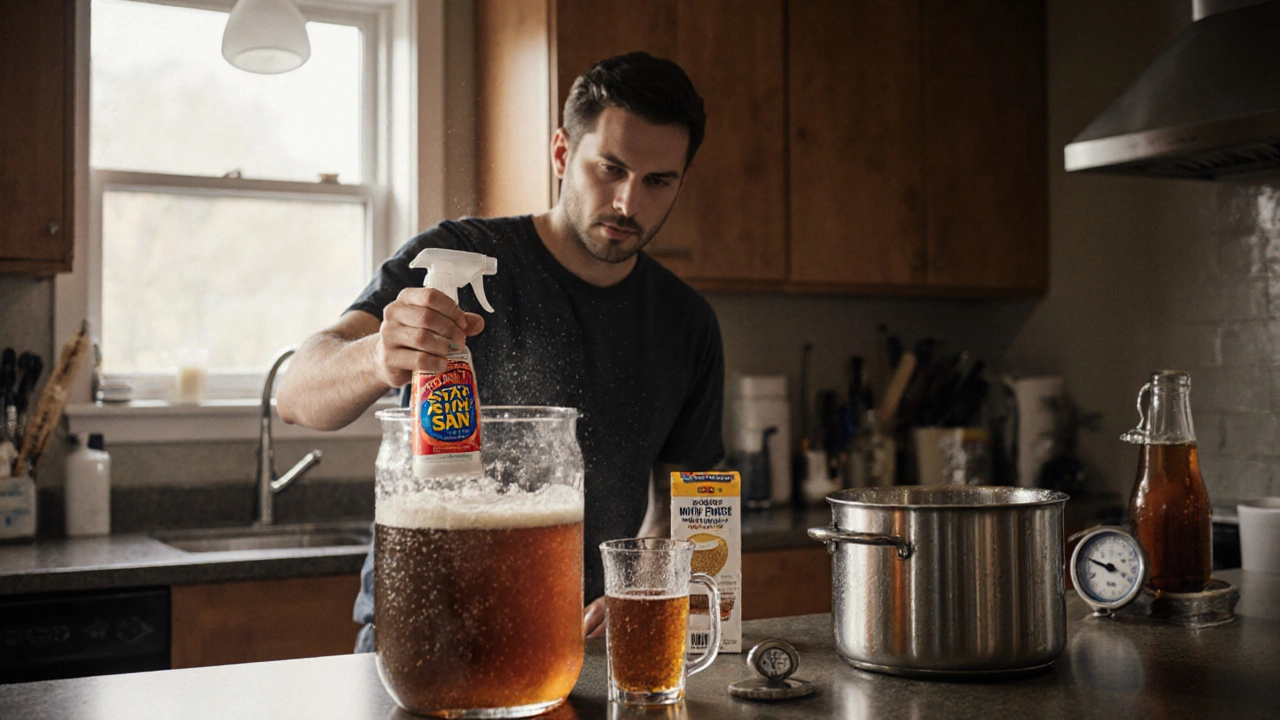Best Homebrew Starter Kit: What You Need to Begin Brewing at Home
When you start homebrewing, the process of making beer at home using simple equipment and basic ingredients. Also known as home brewing, it’s not about fancy gear—it’s about getting started without overpaying or overcomplicating things. Most people think you need a lab, a degree in chemistry, or a garage full of stainless steel tanks. You don’t. The best homebrew starter kit is the one that gets you from zero to first sip in under an hour, with no confusing manuals or hidden costs.
What makes a good kit? It’s not just the fermenter or the bottle capper. It’s the homebrewing equipment, the essential tools that turn sugar, water, hops, and yeast into beer that actually work together. A decent kit includes a food-grade plastic bucket with a lid and airlock, a siphon, a long spoon, a hydrometer to measure sugar levels, and bottles with caps and a capper. Skip the ones with glass carboys for your first go—they’re heavy, breakable, and unnecessary. And avoid kits that throw in a dozen spice packs you’ll never use. Stick to the basics: clean, simple, and repeatable.
The real magic happens with the homebrew ingredients, the core components—malt extract, hops, yeast, and water—that define your beer’s flavor. A good starter kit includes pre-measured liquid or dry malt extract so you don’t have to mess with crushing grains yet. The yeast? It should be a clean, reliable strain like Safale US-05—not some exotic Belgian yeast that requires a temperature-controlled room. You’re not making a 100-point IPA on day one. You’re learning how to make beer that doesn’t taste like flat soda.
People ask me: "What’s the biggest mistake new brewers make?" It’s not sanitation—it’s impatience. You don’t need a 30-step process. You need to follow three rules: keep everything clean, let it ferment for two weeks, then bottle and wait another week. That’s it. The best homebrew starter kit doesn’t promise perfection. It promises progress. And after your first batch, you’ll know exactly what you like—and what you want to try next.
Below, you’ll find real reviews and honest breakdowns of the kits that actually deliver. No fluff. No sponsored posts. Just what works for people who started where you are now—curious, a little nervous, and ready to make something they can call their own.
Yes, you can brew good beer at home-with the right technique, sanitation, and patience. Thousands do it every year, and many win competitions. Here’s how to start and what really matters.
View Details

